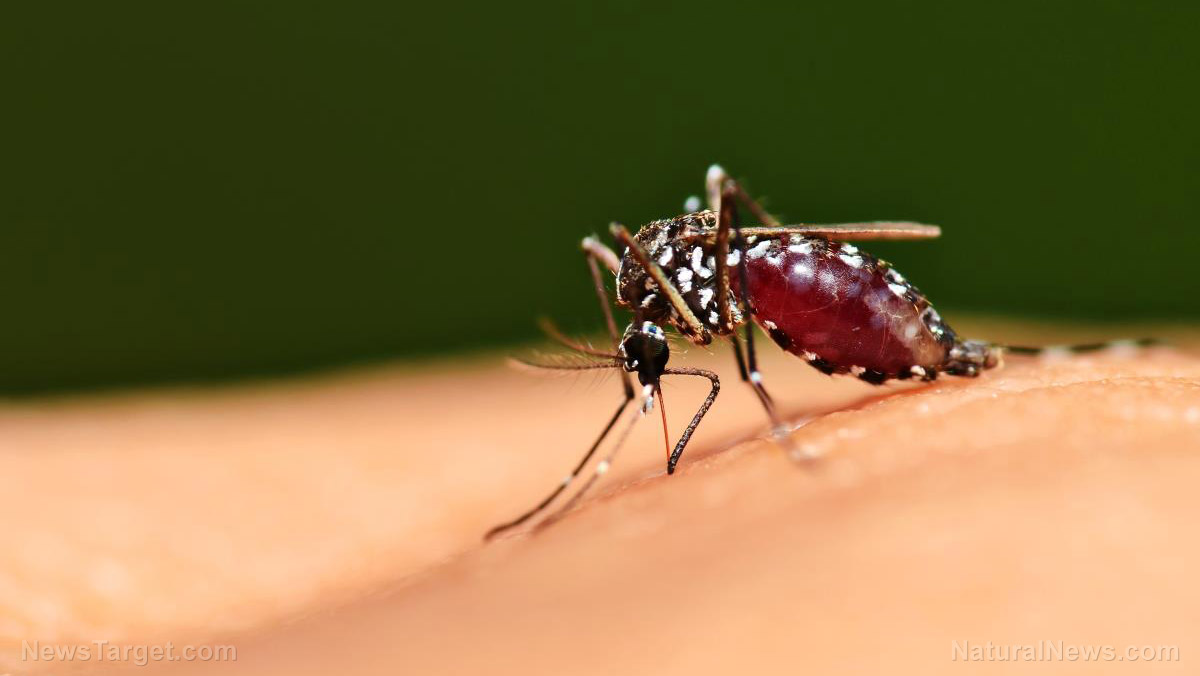
New research out of Yale University has found that Franken-scientists in Brazil are directly responsible for unleashing a new variety of genetically-modified "super" mosquito that's stronger, more robust, and thus more of a public health threat than natural mosquitoes.
While Oxitec, the manufacturer of these transgenic mosquitoes, initially claimed that they would not have the ability to reproduce, this has now been proven false. Oxitec's OX513A mosquitoes, as they've been dubbed, are not only fully able to reproduce, but their offspring are said to possess "hybrid vigor" that makes them stronger and more resistant to insecticides.
This is why some have dubbed Oxitec's OX513A GMO mosquitoes as super mosquitoes, since they're much like "superbugs" and "superweeds" that, contrary to their manufacturers' claims, are actually more resilient than the natural varieties they were supposedly designed to eradicate.
While the release of some 450,000 male OX513A mosquitoes initially led to about an 85 percent reduction in the mosquito population of Jacobina, a city in Brazil, this eventually reversed over time due to the genes from these OX513A mosquitoes being passed on to their offspring.
"The claim was that genes from the release strain would not get into the general population because offspring would die," stated Jeffrey Powell, a professor of ecology and evolutionary biology at Yale. "That obviously was not what happened."
For more related news about the dangers of GMOs, be sure to check out GMO.news.
Areas where OX513A mosquitoes from Oxitec were released now have MORE mosquitoes than before
According to reports, roughly 18 months after Oxitec's OX513A mosquitoes were released in Jacobina, the mosquito population throughout the area jumped right back up to pre-release levels. At the same time, natural female mosquitoes were deciding not to mate with them because of their genetic inferiority, which has actually made the mosquito problem worse.
The Yale paper describes the new "super" mosquitoes that have grown in population ever since as possessing "hybrid vigor," meaning there is now "a more robust population" of mosquitoes in Jacobina "than the pre-release population."
As to be expected, Oxitec has vigorously denied these claims, insisting that its GMO mosquitoes are completely safe and somehow beneficial, even though they've done absolutely nothing to curb the mosquito problem. Oxitec also continues to claim that the OX513A self-limiting gene "does not persist in the environment," even though it has already been proven that it does.
"The release of the mosquitoes was carried out hastily without any points having been clarified," stated Brazilian biologist Jose Maria Gusman Ferraz, as quoted by the the Brazilian newspaper Folha de S. Paulo.
Over in Germany, researchers from the Munich-based Testbiotech research laboratory have expressed similar sentiments, warning that Oxitec's little mosquito experiment has led to "a largely uncontrollable situation."
"This incident must have consequences for the further employment of genetic engineering," added Testbiotech CEO Christoph Then.
It's important to note that Zika, one of the viruses that Oxitec used as an excuse to create and unleash its OX513A mosquitoes, has never even been proven to cause the outbreak of microcephaly that had swept across parts of Brazil prior to their release.
Amazingly, the true cause appears to have been a pharmaceutical drug or vaccine, and possibly the prescription drug thalidomide, which used to be given to pregnant women before it was discovered that a common side effect is for babies exposed to it to be born without limbs.
"God made the world 'perfect,'" points out one Zero Hedge commenter about the utter insanity of tampering with nature like this. "The arrogance of anyone trying to play God is a disgrace. Fix the fever, leave creation alone."
For more stories about the "scientific" obsession with genetic engineering, visit Twisted.news.
Sources for this article include:
Please contact us for more information.




















